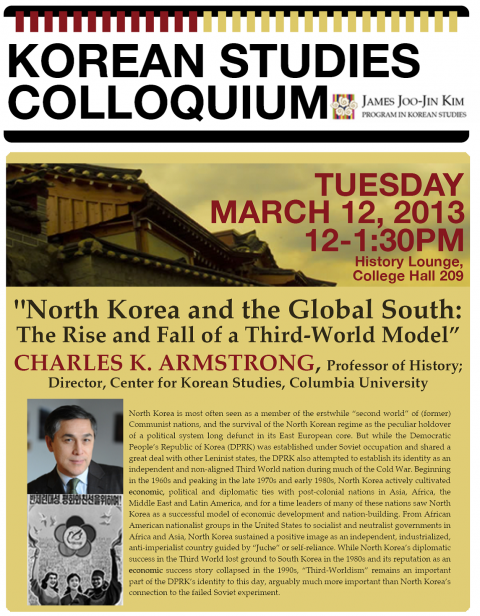
Korean Studies Colloquium
College Hall History Lounge, Room 209
Charles Armstrong, Professor of History; Director, Center for Korean Studies, Columbia University
North Korea is most often seen as a member of the erstwhile “second world” of (former) Communist nations, and the survival of the North Korean regime as the peculiar holdover of a political system long defunct in its East European core. But while the Democratic People’s Republic of Korea (DPRK) was established under Soviet occupation and shared a great deal with other Leninist states, the DPRK also attempted to establish its identity as an independent and non-aligned Third World nation during much of the Cold War. Beginning in the 1960s and peaking in the late 1970s and early 1980s, North Korea actively cultivated economic, political and diplomatic ties with post-colonial nations in Asia, Africa, the Middle East and Latin America, and for a time leaders of many of these nations saw North Korea as a successful model of economic development and nation-building. From African American nationalist groups in the United States to socialist and neutralist governments in Africa and Asia, North Korea sustained a positive image as an independent, industrialized, anti-imperialist country guided by “Juche” or self-reliance. While North Korea’s diplomatic success in the Third World lost ground to South Korea in the 1980s and its reputation as an economic success story collapsed in the 1990s, “Third-Worldism” remains an important part of the DPRK’s identity to this day, arguably much more important than North Korea’s connection to the failed Soviet experiment.
 James Joo-Jin Kim Center for Korean Studies
James Joo-Jin Kim Center for Korean Studies